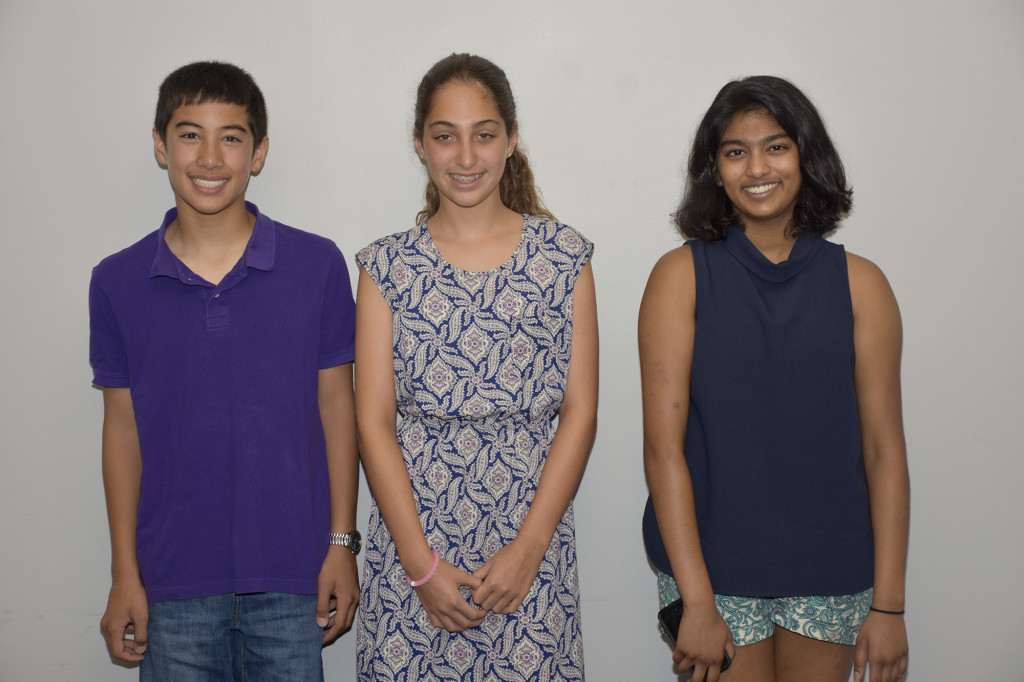By: Edir Coronado
On June 17, 2016 the movie Finding Dory, the sequel to Finding Nemo, was released and like its predecessor, was popular amongst children and adults alike. The Disney/Pixar film not only garnished popularity for the picture itself, but also for the characters portrayed in the movie. When Finding Nemo was released, moviegoers took to pet stores and purchased their very own Clownfish; stemming from a new found admiration of the fish. History may repeat itself with Finding Dory and the Blue Tang fish which is featured in the film. Elizabeth Blank, Anya Srivasta, and Daniel Aranda, three middle school children from New Providence decided to spread awareness by starting a nonprofit organization named dontfinddory.
The idea for the group was presented by Anya and quickly thereafter Daniel and Elizabeth climbed onboard. Hard at work for a month, the group has already launched a Facebook page, Twitter and Instagram accounts, a GoFundMe page, and website where they post daily facts about the environment and the Blue Tang species, in order to raise awareness and funds. Their social media force, combined with their fund raising events, which will be in full effect during the school year, will provide them with the opportunity to accomplish their goal of reaching out to community members and people from all over.
While the dontfinddory organization feels all species need special attention, they realize the overall thought of the public is that fish are oblivious. “I feel like marine life are more overlooked than other animals,” stated Daniel, this sentiment being the general consensus among the group. If they were to successfully broadcast their message and impact how the community interacts with the Blue Tang fish, these young activists would then set their sights on continuing to spread the word about the importance of other marine life. Although the group feels that all animal species are important, experts also agree aquatic life is often overlooked. The terms sentient and selfawareness are often reserved for humans and other mammal-like creatures, such as, apes or dolphins; however, studies such as the Manta Ray Cognition Mirror Test, prove that many of our underwater creatures are conscious of their own existence.
The group’s social media sites provide a wealth of knowledge with members, both in person and online, continuously posting facts about the harmful effects of the human hand on the environment, even citing how the human hand literally can have a devastating effect on individual animals. “SeaWorld encourages people to touch dolphins, but the dolphins don’t actually like that and it could shorten their life span,” stated Anya. The kids are gaining their inspiration from their compassion towards animals, “I want to do my part to change the world for the better,” stated Daniel. The group is often worried that if the Blue Tang species were to be taken in by families, they would be mistreated by being placed in small fish tanks, which is often the case. This, according to the dontfinddory organization, is detrimental to their mental health and causes them to lash out on others of their kind. “I don’t think Blue Tang should be kept as pets, and no creature should have to live like this,” expressed Elizabeth.

- Home
- Publications
- Berkeley Heights Community News
- Clark Monthly
- The Chathams
- Cranford Monthly
- East Hanover View
- Elmora Hills
- Fanwood Post
- Florham Park Press
- Garwood Times
- Green Brook Gazette
- Hanover Township Press
- Kenilworth Business Life
- Life in Linden
- Livingston Monthly
- Long Hill Leader
- Madison Monthly
- Millburn Short Hills Monthly
- Mountainside View
- Morristown Monthly
- Morris Township Times
- New Providence News
- Our Town Rahway
- Peterstown NJ
- Life in Roseland
- Roselle Park Monthly
- Scotch Plains Monthly
- Spirit of Union
- Summit Times
- Pride of North Plainfield
- Warren Monthly
- Watchung Post
- Westfield Monthly
- Articles
- Advertising Information
- About
- Submit News
- Photos

